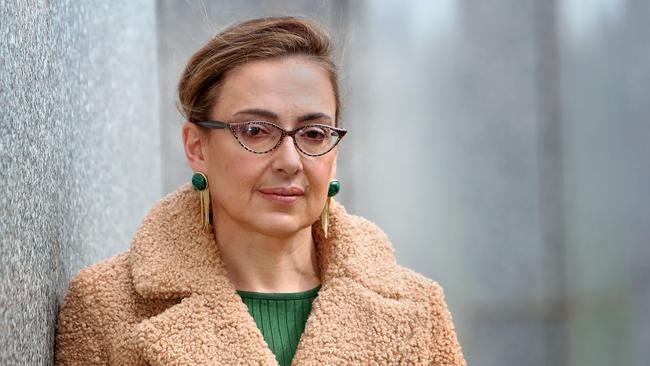Doctors support private health primary care push
The nation’s peak doctors’ lobby has thrown its support behind a proposal by private health insurers to fund a suite of preventative health services in general practice.

The nation’s peak doctors’ lobby says it would support a proposal by private health insurers to fund a suite of preventative health services in general practice to keep people out of hospital, as the funds call for law changes to combat high rates of lengthy hospital stays for common conditions.
Private Healthcare Australia, which represents 20 funds that provide coverage to almost 14 million Australians, has declared that the operation of Medicare is “primarily benefiting the wealthy” as poorer people are being denied bulk-billing and richer families more frequently access specialist care, which delivers much higher rebates than GP visits.
The funds want to be able to fund treatments for privately insured patients with chronic health conditions including mental health and alcohol and drug treatments, joint health support, weight-loss support and heart health.
PHA argues in a pre-budget submission it is “bizarre” that insurers are prohibited from working with doctors to fund primary care.
It is calling for a simple change to laws that govern private health insurance which currently proscribe that services provided by GPs and nurses outside of hospital cannot be funded by insurers.
PHA CEO Rachel David said the organisation was not calling for health insurers to be able to fund all services and cover gap fees as sought by nib chief Mark Fitzgibbon.
“I think it could be very inflationary both on premiums and the MBS, but from our perspective, additional funding for general practice to be able to really do preventative work and chronic disease management is where we think the biggest bang for the buck is,” Dr David said.
Australian Medical Association president Steve Robson said health insurers funding preventative primary health services was “a space worth looking at”.
“We would support private health involvement in primary care programs that aim to keep people out of hospital,” Professor Robson said. “We have big reservations about private health being involved in general practice per se, but in specific programs that are all really aimed at keeping people out of hospital, that’s certainly something that is interesting.”
Australia has lengthy hospital stays for common conditions compared to similar countries, and much of the care delivered in hospital could be funded in a community or general practice setting if there was adequate resourcing and access. Primary care receives less than 10 per cent of the health dollar from governments, and hospitals are extremely costly.
“Part of the reason for these additional costs is outdated commonwealth legislation that encourages in-hospital care and longer stays with minimum hospital benefits,” the PHA submissions says. “Removing, or at least reforming, minimum and default benefits paid for hospital care would reduce length of stay, improving efficiency and patient outcomes at a lower cost to consumers.
“Depending on the reforms agreed, consumers could save up to $225m per annum. This translates to around 75 basis points’ reduction in premiums, and over $200m in savings for the federal budget over four years. Reducing perverse financial incentives for in-hospital care would address cost-of-living pressures.”
The PHA pre-budget submission comes after a federally convened Medicare task force last week handed down a report that called for an overhaul of funding for general practice to better allow for multidisciplinary care provided by a wider range of health professionals.
But health economist and Medicare task force member Stephen Duckett strongly opposed the idea, which he said would have a negative impact on the sector.
He said “pouring money” into a system that needed structural reform was “not the way to go”.
Royal Australian College of GPs president Nicole Higgins said she supported “the universality of healthcare” when it came to the question of private healthcare funding general practice. However, she stressed the sector was chronically underfunded and workers within it felt undervalued.
Private insurers were not included in discussions around Medicare reform but say they could play a crucial role, especially in light of the fact that many of the people experiencing a severe lack of access to primary health services are now turning to private insurance, many of them on low and middle incomes.
The insurers want very-high income earners to pay a higher Medicare levy surcharge, which hits those on higher incomes who do not have hospital cover.



To join the conversation, please log in. Don't have an account? Register
Join the conversation, you are commenting as Logout